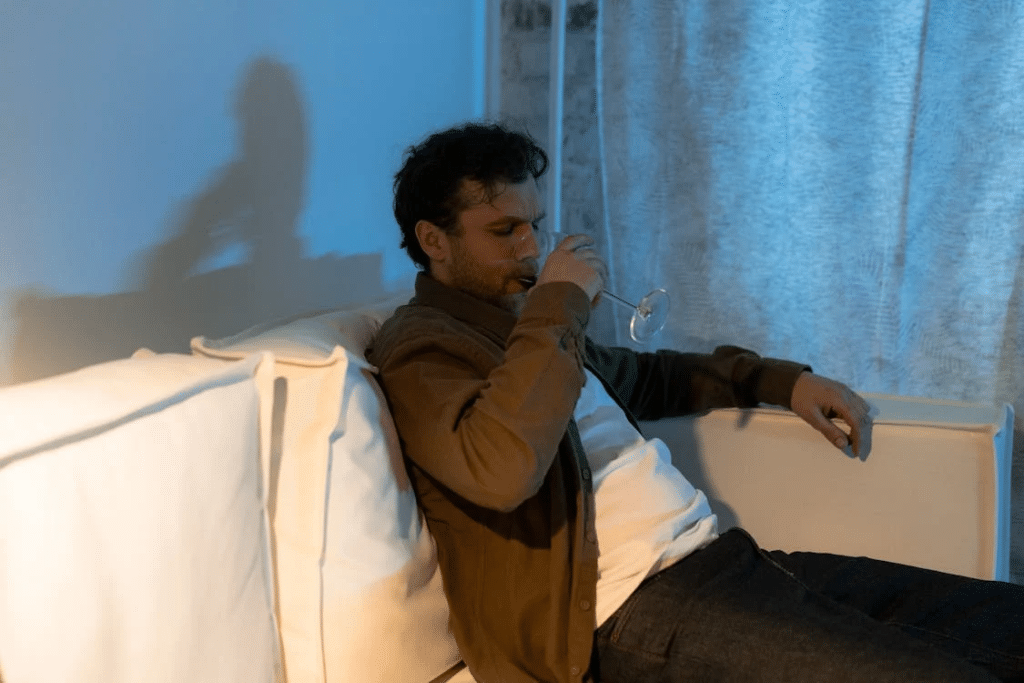
You said you wanted space, but now you can’t stand the silence. You scroll through her old pictures, wondering how you ended up as the one hurting when you were the one who walked away. That’s the trap of playing the victim after pushing her away. It’s sneaky, emotional, and downright confusing.
You Keep Saying She “Stopped Trying”

You tell everyone she lost interest, but you ignore the times you made her feel unwanted. People stop trying when they feel consistently rejected or unheard. You trained her to stop giving it. Ask yourself how often you made her feel like her love was too much work. Playing the victim starts when you rewrite neglect as abandonment.
You Blame Her for Needing Space First

She didn’t withdraw overnight. She was exhausted. Emotional burnout in relationships often happens when one partner constantly feels like they’re fixing everything alone. When she started protecting her peace, you took it personally. You called it pulling away, but she was finally setting boundaries you ignored.
You Only Remember the Good Times

You replay every romantic memory, convincing yourself it was perfect until she changed. Selective memory is a classic coping mechanism. It helps you avoid guilt. But nostalgia lies. You forget the fights, dismissive tones, and cold silences. It’s easier to miss her than to admit you made her feel small. Every time you romanticize the past, you’re protecting your pride instead of learning from it.
You Tell Friends She “Gave Up Too Easily”

That line sounds noble, but it hides your accountability. Most women don’t give up easily. They give up after trying too long. If she walked away, it was the last resort. People don’t leave when they’re tired. They leave when they’re done explaining their pain. So maybe you just didn’t listen soon enough.
You Waited for Her to Fix It

When things went south, you acted like the silent sufferer, waiting for her to call, text, or apologize first. That’s passivity disguised as pain. Playing the victim makes you feel righteous for doing nothing. But relationships don’t heal through silence. Waiting for her to fix what you broke is emotional laziness.
You Called Her Overreacting

Every time she expressed hurt, you labeled it as drama. But minimizing emotions is emotional manipulation. It makes her doubt her feelings while you play calmly and reasonably. This pattern often appears in people who can’t handle emotional accountability. You don’t have to be toxic to be dismissive. But you can’t heal until you admit that you were.
You Talk About How Lonely You Are

You post cryptic quotes about “fake love” or “loyalty,” hoping she’ll see them. But the loneliness you feel is a consequence. You miss her attention more than her effort. It’s easier to say “she left me alone” than “I made her feel alone first.” Loneliness is heavy, but it’s also a teacher if you let it be.
You Compare Every Woman to Her

You claim no one measures up, but what you’re really saying is, “I miss how easy she made love feel before I ruined it.” Comparison is grief in disguise. You’re avoiding closure. The more you idealize her, the less responsibility you take for what ended.
You Pretend You Don’t Care

You joke about being better off, post memes about “peace,” and act unbothered. But pretending you don’t care is still caring, just with pride in the driver’s seat. Suppressing heartbreak only makes it last longer. Emotional avoidance keeps you stuck in victim mode.
You Say “She Changed”

No, she just grew tired of the version of you that refused to change. Saying that makes it sound like she became someone cold or heartless. But maybe she finally chose herself. It’s a deflection to justify your hurt without acknowledging your part in it. People evolve when they’re no longer loved properly.
You Expect Her to Reach Out First

You convince yourself that if she really cared, she’d check in. But she probably did care, and that’s why she stopped. Reaching out again would only reopen old wounds. You’re waiting for validation that you’re still worth chasing. That’s ego rehab.
You Use “I Miss You” as an Apology

Missing someone isn’t the same as making things right. When you text “I miss you” instead of “I’m sorry,” you’re avoiding accountability. Apologies without change are manipulation. It’s emotional bait dressed as vulnerability. If you really miss her, show it through growth, not nostalgia.
You Act Like You Were the Only One Hurt

Every breakup hurts, but pain doesn’t erase fault. You focus on your heartbreak to escape guilt, but both can coexist. Feeling sorry for yourself is easier than facing the damage you caused. But real healing starts when you accept that your pain doesn’t make you the victim. It just makes you human.
You Tell Yourself “She’ll Come Back”

That belief keeps you from moving on or changing. It’s comforting but delusional. You assume time will fix what effort didn’t. But as relationship experts often say, time doesn’t heal avoidance. It just hides it under new distractions. If you keep waiting for her return, you’re pausing your life.
You Avoid Talking About What You Did Wrong

You replay her mistakes like a highlight reel but mute your own. Silence about your flaws is denial. Growth in relationships begins when you stop viewing yourself as the hero or the victim. Accountability is uncomfortable, but it’s the only thing that separates learning from repeating.
You Say “No One Understands Me”

That’s emotional self-isolation. You distance yourself from advice because it threatens your narrative. When friends tell you to move on, you think they “don’t get it.” But what they really don’t get is why you’d rather stay wounded than be wrong. Victimhood feeds on validation. It dies in self-awareness.
You Believe Love Should Be Effortless

That belief ruins more relationships than betrayal ever could. You thought love should always feel easy, so when it got hard, you saw it as a sign to pull away. The best relationships demand work, growth, and humility. Real love is taking responsibility when you hurt each other.






Ask Me Anything